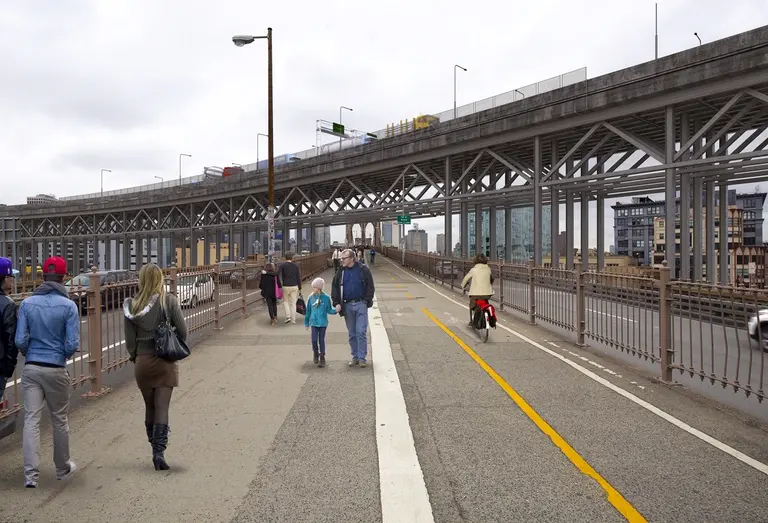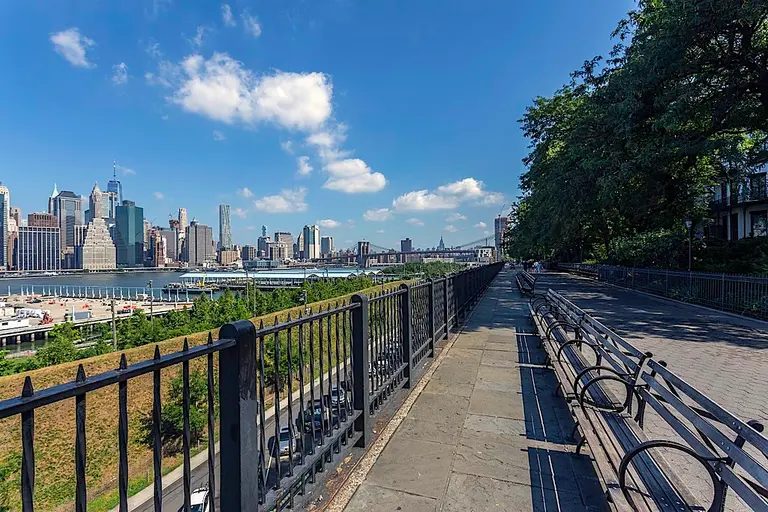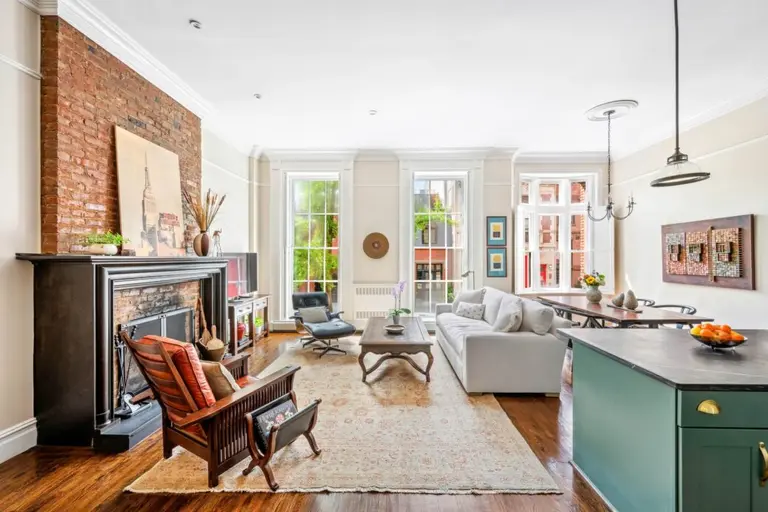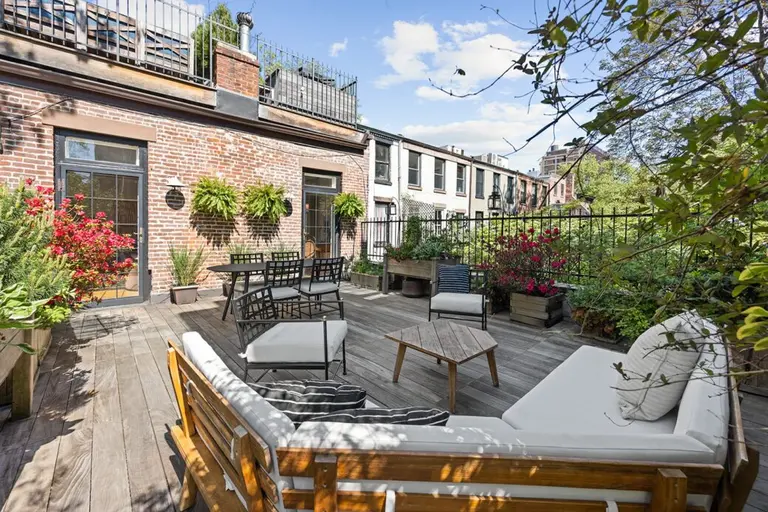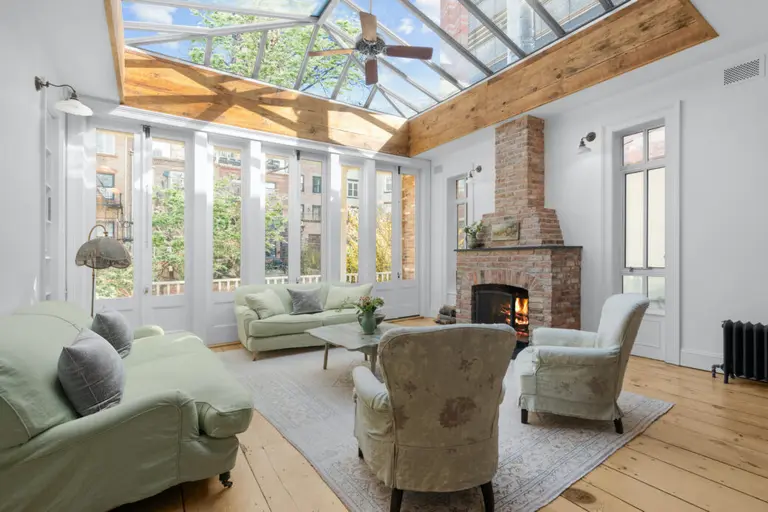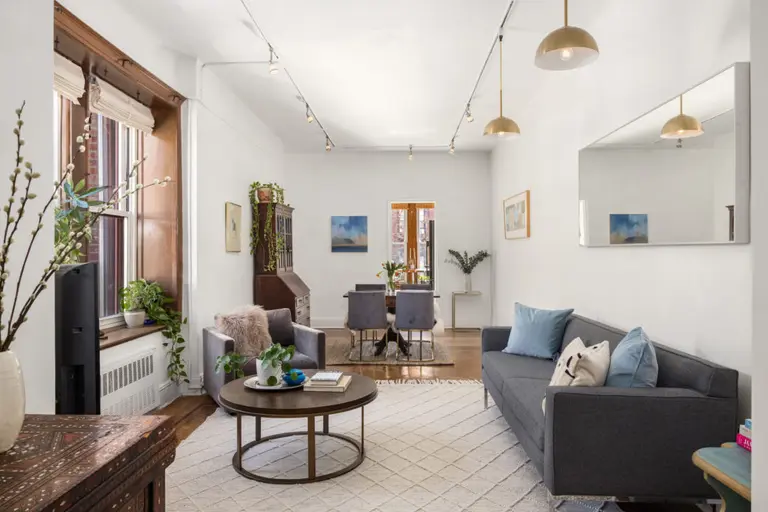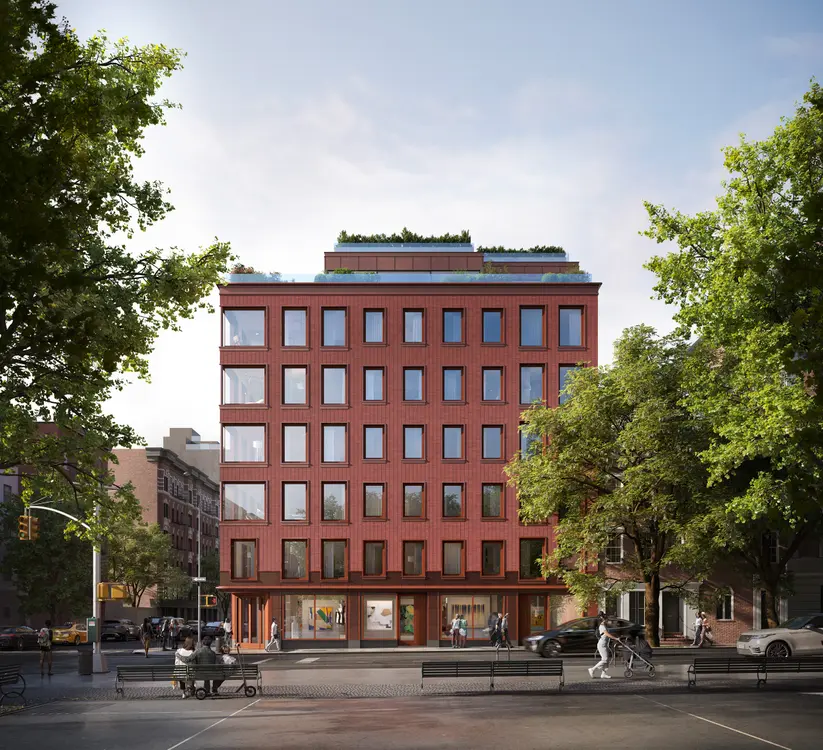$1.7B BQE rehab will be Department of Transportation’s most expensive project ever
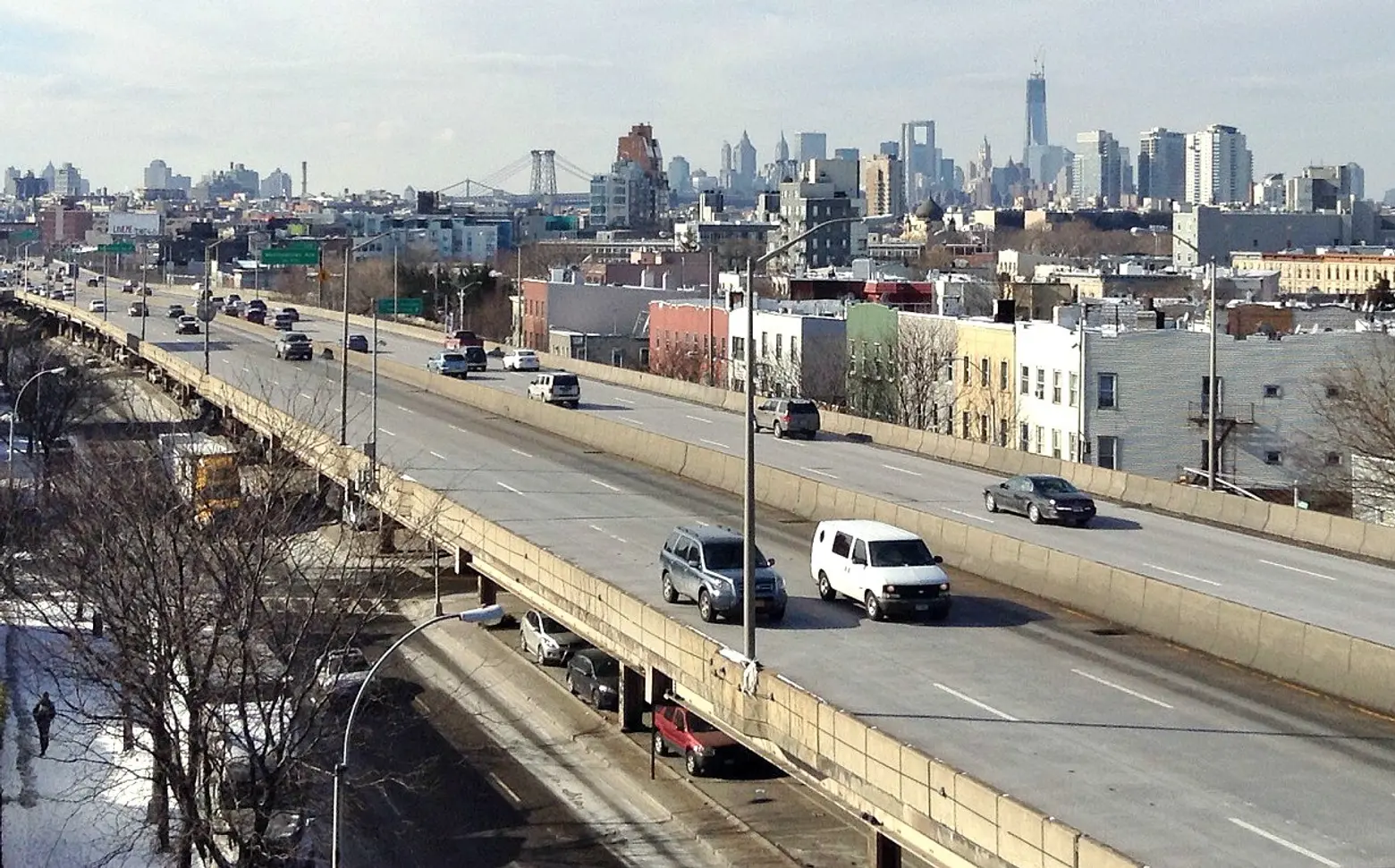
When it was built in the 1940s, the Brooklyn-Queens Expressway became immediately notorious for the fact that Robert Moses planned it to rip through otherwise quiet, low-scale neighborhoods. Today, it’s poor reputation has more to do with potholes, bumps, congestion, and pollution. But that will soon change, as the city is embarking on a five-year rehab of the heavily trafficked, 1.5-mile stretch of the highway that runs between Atlantic Avenue and Sands Street in Brooklyn and includes “21 concrete-and-steel bridges over local roads,” according to the Times. And at $1.7 billion, it will be the Department of Transportation’s most expensive project ever undertaken.
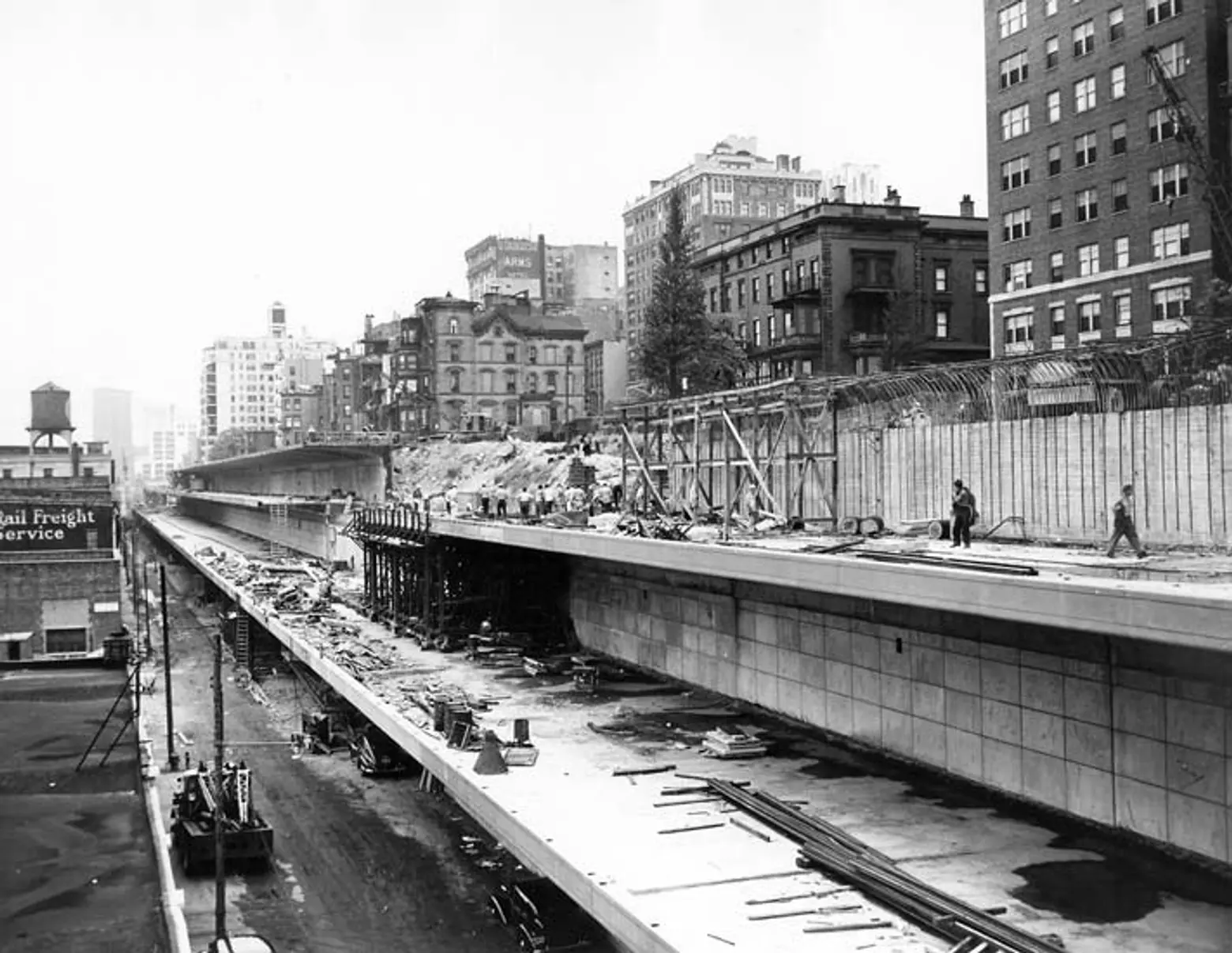
Construction of the BQE and Brooklyn Heights Promenade (a concession since the neighborhood fought the highway) in 1948, via NYC Department of Parks and Recreation
The decision comes after an $8.1 million analysis of the highway, which now carries 140,000 vehicles a day, 45,300 more than it did in the 1970s and many of which are trucks. The study found that steel rebars inside the concrete were corroded from road salt and causing growing cracks, a worsening situation that would likely lead to emergency repairs “that could close lanes and cause traffic chaos.”
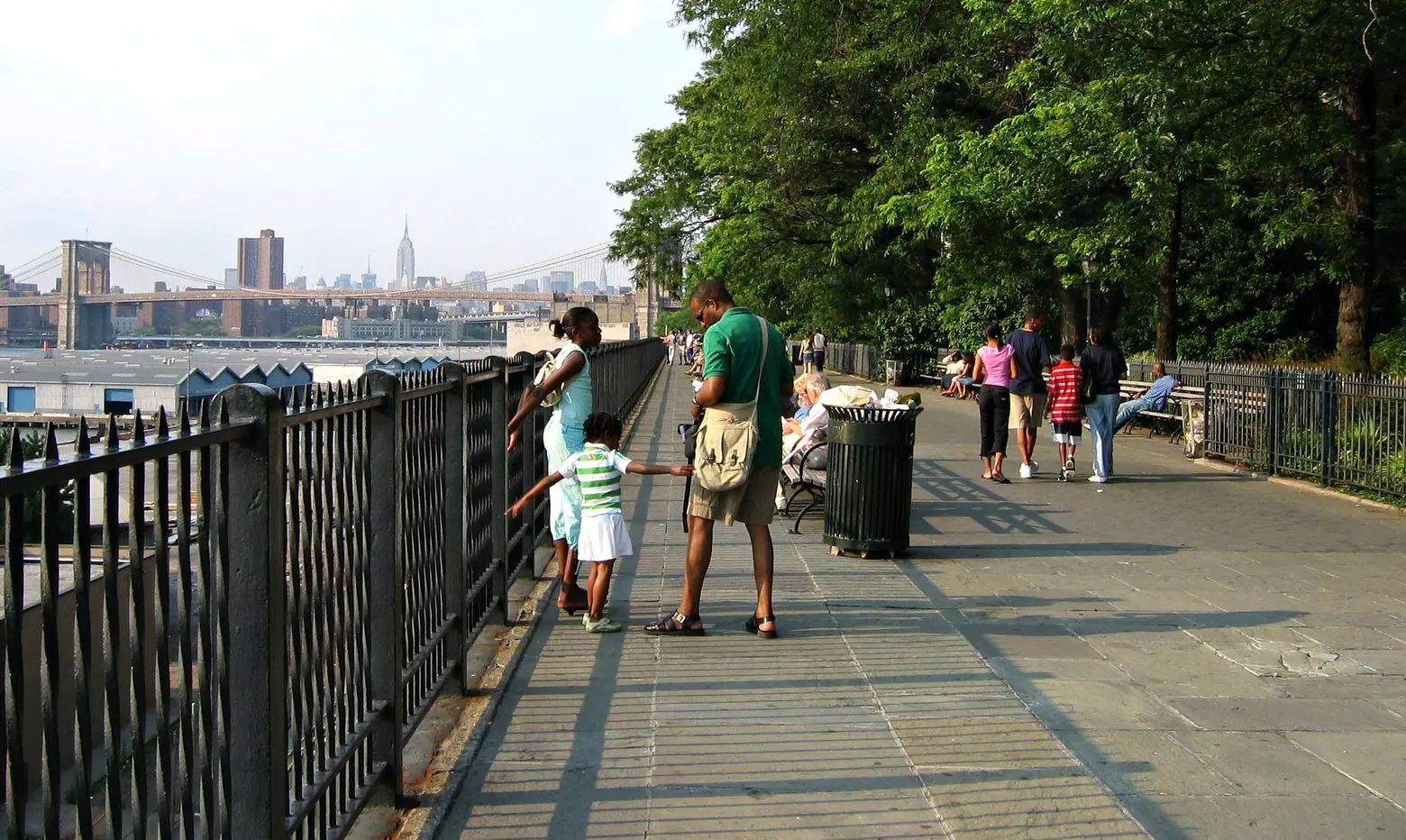
The Brooklyn Heights Promenade today
The portion in question has a high incident of crashes due to narrow lanes without shoulders and no acceleration lanes for merging. It also includes a three-level, cantilevered span built into a bluff in Brooklyn Heights where each level is only supported on one end, with the Brooklyn Heights Promenade on top and three-lane highways on the lower two levels (one level goes to Queens, the other to Staten Island). Frequenters of the Promenade regularly complain of noise and vibrations from the traffic below.
In addition to fixing these structural issues, the DOT wants to add pedestrian waterfront access along the route, which is currently blocked by the highway. Mayor de Blasio included the entire $1.7 billion project in the city’s 10-year capital plan, though they’ll seek funds from the state to cover around 38 percent of the cost. Officials haven’t yet released a comprehensive plan of the work, but they’re reassuring local residents that throughout construction “part of the highway will remain open with the same number of lanes in each direction and that traffic will not be diverted to local streets,” however parts of the Promenade will close at times. If they receive approvals to use the expedited building process known as “design-build” work could commence as early as 2020, three years sooner than planned.
[Via NYT]
RELATED:
